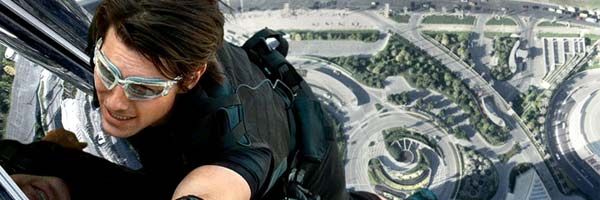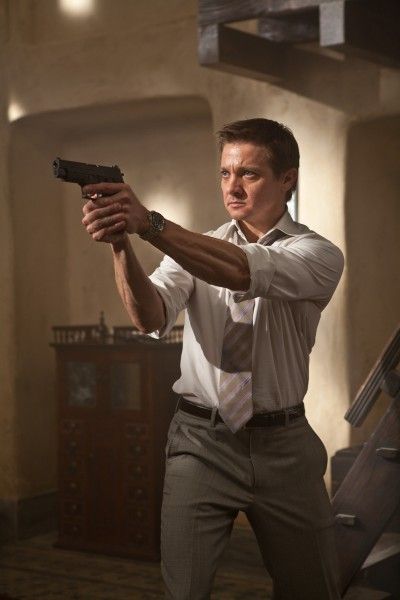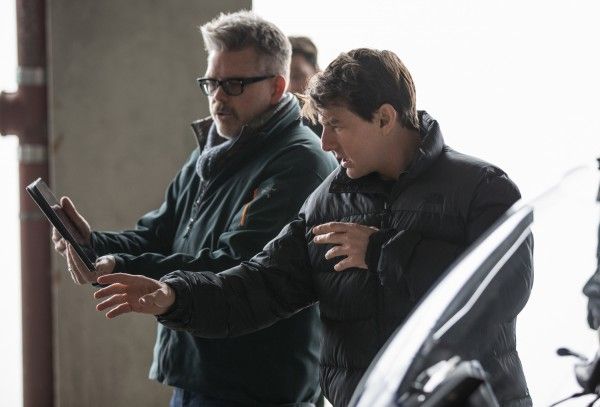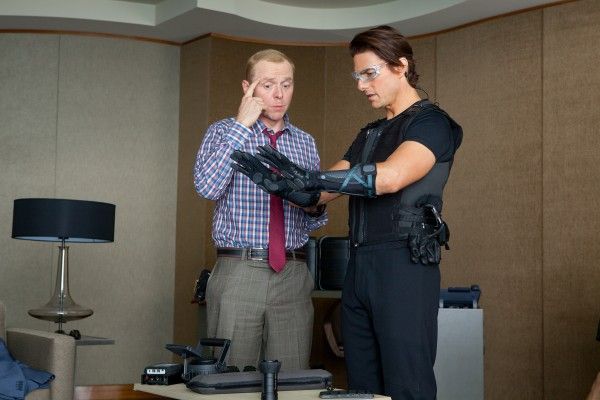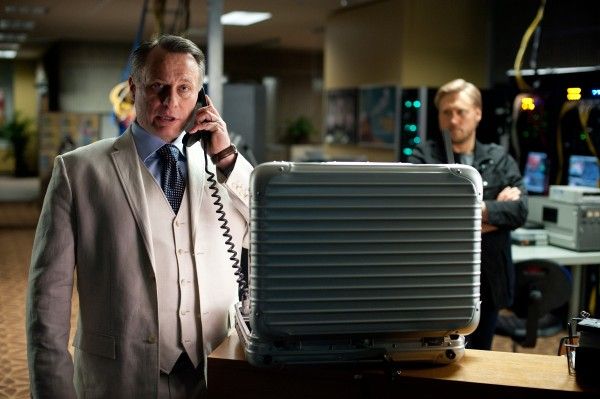Christopher McQuarrie is a gift to cinephiles. Not just because the writer-director keeps making incredible action movies and lending his voice as a top industry screenplay doctor, but because he's so open and communicative about the whole experience. Few filmmakers engage with fan questions more actively and thoughtfully than McQuarrie does on social media, record multiple commentaries for their Blu-ray releases, and willingly jump on podcasts for hours and hours to break down their craft. Whatever the medium, the Mission: Impossible - Rogue Nation and Fallout director always discusses the nuts and bolts of making a movie with a clear and simple attention to detail that makes you go, "Huh, so that's how they pulled that off."
If there's one topic McQuarrie tends to keep mum about, it's his rewrite work. But fortunately, frequent collaborator Tom Cruise has been less discreet, opening the door for McQuarrie to talk about what he contributed to Brad Bird's Mission: Impossible - Ghost Nation before taking over as director on the subsequent films. McQuarrie dropped by the Light the Fuse Podcast last week and broke down in detail what he changed in the script for the fourth Mission: Impossible film.
According to McQuarrie, the biggest changes had to do with what the film was keeping secret and what it gave away upfront. In particular, the details of what happened to Michelle Monaghan's Julia and how it tied into the backstory for Jeremy Renner's Agent Brandt. McQuarrie explained,
"When I read the script, the big things were, you didn’t know what was in the suitcase, you didn’t know what was in the envelope, you didn’t know what the villain was doing — this was all a mystery in the movie — and Michelle Monaghan was dead, Julia’s character was really dead. I came on board and I said, 'Look, there are two things going on. One, emotionally if Julia’s dead, no matter how this story turns out, I’m sad. A hundred means you're at ninety, because no matter how well Ethan wins, he’s carrying this failure that you’ve alluded to the entire movie.' You’ve got to let the audience of the hook tonally in Brad Bird’s Mission: Impossible. The other thing that was going on was that Jeremy Renner had a different backstory. His character of Brandt, he was still the agent that was now an analyst, but the reason that he couldn’t go back into the field was that he had hesitated and his hesitation had led to the death of two nameless agents. And in this event, I think they referred to it as White River… it become the code for this unhealed scar in his past."
I said, first of all, let’s try to integrate Tom’s story with Jeremy’s story so that Jeremy’ story is actually relevant to the movie, right now it feels like there are two movies happening. And again, no matter how you resolve Jeremy’s story, even at a hundred you were at ninety because he still hesitated and these two guys were still dead. Whereas, if we integrate the stories to say that Jeremey feels responsible for the death of Julia and at the end of the story we found out Julia’s not dead and Jeremy finds out that Julia’s not dead, you get to use that emotional engine, but then you get to let the audience off the hook at the end of it. You’ll notice you don’t really hear it discussed that Julia’s dead until Jeremy Renner tells the story. The notion of death in the movie doesn’t come up until you’re seventy minutes in, as opposed to right up at the beginning of the story, [so] every time I look at Ethan I’m thinking, ‘poor guy his wife died.’”
Basically, McQuarrie decided that they should integrate Brandt's and Ethan's story, and flip the mystery of the script by making Julia's story a mystery instead of the plot-driven elements. McQuarrie explained,
"That was my note to the studio, take everything that’s known and hide it and take everything that’s hidden and reveal it. Respectfully, I’m not a mystery box guy. I don’t believe in that kind of storytelling, I feel that that leads to — I understand that it makes for very compelling narrative drive, but it brings you to the end of the movie and it inspires the three great words of cinema, which are: "And? So? OK?" And if you hear any one of those three things, it’s time to go back to the drawing board. I believe that a mystery is only as good as its reveal."
McQuarrie also said he was tasked with writing the scenes inside the two rooms at the Burj Khalifa in order to tie the exterior action -- which was mostly already shot -- into the scene. McQuarrie details how he refined the moment-to-moment of the scene with Bird on set, accounting for the details of the structure as you flip between the two rooms. He also revealed some of the reshoots, including the moment where we learn why Ethan was sent to prison, which was added later to help tie up the lines between Julia and Brandt's backstory.
And in case you were wondering, McQuarrie also cleared up why Damon Lindelof was brought on for yet another script clean up -- the studio wanted a different ending. McQuarrie said,
"Damon Lindelof came in because there was another ending to the screenplay that the studio wanted, that no longer fit on the movie. It was more to their liking but the script that I had written took the movie in a direction that didn't allow that... the studio wanted their ending and they were doing everything they could to somehow make that work, but by the time they were there, they had already shot the things that were directing the movie where it went, not where they wanted it to go.... Damon, poor Damon was brought in, much to his credit, to essentially take the square peg of Ghost Protocol and drive the entire thing through a round hole of what the studio wanted the ending of the movie to be versus what Mission wanted it to be... and Mission has a mind of its own."
As for his ending, McQuarrie said that he wrote a more ambiguous version of the final sequence in San Francisco, where Ethan reveals Julia is still alive. According to the filmmaker, the sequence had Ethan talking to his team and essentially telling the story of what happened between him and Julia, aka what we would eventually see in Fallout. And despite what you might think, he wasn't the one who added the Syndicate tag to to the end of Ghost Protocol! That was all Brad Bird!
There's a lot more gold on how Ghost Protocol was made and how the last few films in the Mission: Impossible franchise have been shaped, so you can and should listen to the whole interview over at Light the Fuse.

